
1 Be Scrappy
Wait, don’t throw out that carrot top! Many veggies and herbs—carrots, celery, ginger, potatoes, peppers, basil, radishes and more—are comeback champs, as long as you keep the right part of the plant (usually either the top or the seeds inside) to stick back in the soil. If you feel the need to do a little research on the subject before plunking that radish top into the dirt, you’ll find plenty of books and online materials on the subject. And best of all, it’s a zero-risk activity: There’s nothing to lose if no sprouts form, but you’ll have much to gain if they do.
2 Find TreasuresEven if it’s covered in snow, your yard provides a great pastime: wreath-making. Head outside and grab red dogwood and a few birch branches—and some berries from the garden or a craft store—to construct a nifty, one-of-a-kind decoration that makes a great conversation piece or holiday present. To make the final product even more eye-catching, add a few dried flowers from last summer’s garden.
3 Try a Mushroom Kit
Denne historien er fra December 2019/January 2020-utgaven av Birds & Blooms.
Start din 7-dagers gratis prøveperiode på Magzter GOLD for å få tilgang til tusenvis av utvalgte premiumhistorier og 9000+ magasiner og aviser.
Allerede abonnent ? Logg på
Denne historien er fra December 2019/January 2020-utgaven av Birds & Blooms.
Start din 7-dagers gratis prøveperiode på Magzter GOLD for å få tilgang til tusenvis av utvalgte premiumhistorier og 9000+ magasiner og aviser.
Allerede abonnent? Logg på
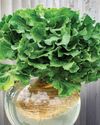
Basics of Hydroponics
Use these top tips and plant picks to have a successful soil-free garden
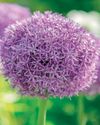
Rooted in Resilience
These hardy perennials will thrive in most zones
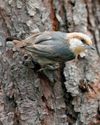
Social and Supportive
Brown-headed nuthatches take a helpful approach to raising their young
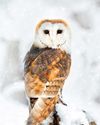
All About Owl Pellets
And why you should give a hoot about them
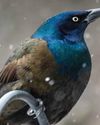
Ask the Experts
Advice from our pros about houseplants, bird feeding and more

BRING THE OUTDOORS IN
Making a terrarium is about as close as you can get to a Zen DIY project. Once you have gathered the proper materials and squared away your plant selections, it's as simple as layering it all together and watching your mini ecosystem thrive. Here, I'll walk you through my foolproof process and cover all the required elements for good filtration, healthy soil, strong root growth and resistance against fungus and disease.

GROW THIS. NOT THAT
Six easy-to-grow houseplants—and six that may not be the right choice for you
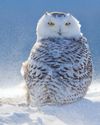
Winter MAGIC
Forecasts may be frigid, but grab your binoculars because birding opportunities are still incredible
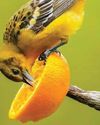
Sense or Nonsense? - Why some birds can taste and smell - but others can't
Does a porcelain berry taste like a blueberry to a gray catbird? Does a block of lard smell like frying bacon to a northern flicker? The short answer is no. While some avian species do have a well-adapted sense of taste or smell, they can't distinguish between flavors and odors the way humans can. They're not picking up every ingredient in the suet you put out, says José Ramírez-Garofalo, an ornithology researcher at Rutgers University in New Jersey and the director of Freshkills Biological Station in Staten Island, New York.
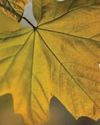
Maple Mania - Amazing facts about this fall foliage mainstay
Amazing facts about this fall foliage mainstay